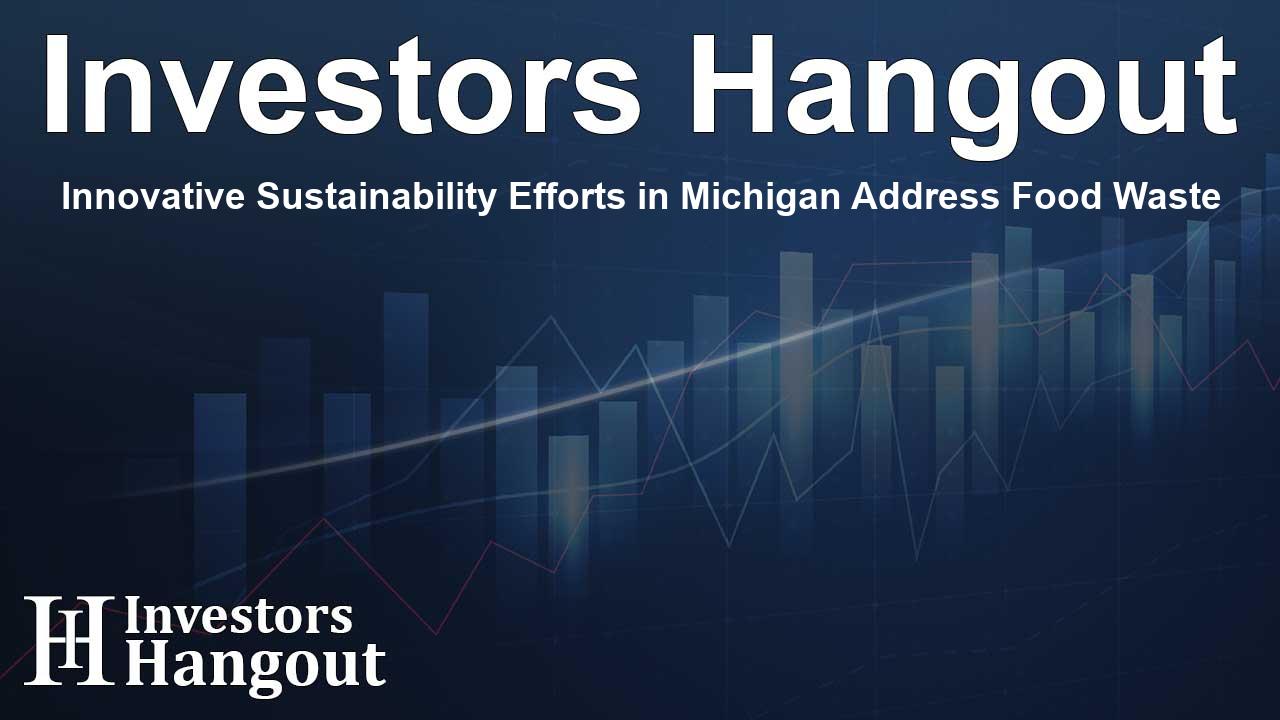Innovative Sustainability Efforts in Michigan Address Food Waste

Innovative Sustainability Efforts in Michigan Address Food Waste
Heather Hutchins-Wiese, a professor and co-director of the Dietetics and Human Nutrition program at Eastern Michigan University, is spearheading a transformative sustainability initiative that targets food waste reduction in the region. This project brings together several key municipalities in Southeast Michigan, showcasing a collaborative approach to address an issue that affects both the environment and community welfare.
Collaboration for a Sustainable Future
Hutchins-Wiese's efforts are supported through a partnership with Make Food Not Waste, a Detroit-based nonprofit organization dedicated to reducing food waste across Michigan. Their ambitious goal is to halve food waste by 2030, and they are doing this by engaging with six major cities in Metro Detroit to help them develop customized food waste prevention strategies.
Through this initiative, cities such as Southfield, Dearborn, Livonia, Farmington Hills, Westland, and Canton are receiving targeted assistance to create plans that cater to local needs. These blueprints will serve as actionable guidelines, allowing each community to tackle the pressing issue of food waste effectively.
The Human Element in Waste Reduction
Hutchins-Wiese emphasizes that this project transcends waste management; it is fundamentally about people. Her commitment is rooted in the belief that redirecting surplus food away from landfills not only addresses waste issues but also alleviates food insecurity, contributes to environmental protection, and fosters community resilience. The initiative aligns closely with the values of Earth Day, calling for significant actions toward climate and justice.
Hands-on Approach with Community Engagement
As a registered dietitian and member of the EMU Sustainability Commission, Hutchins-Wiese plays a vital role in collecting and analyzing community-specific data, refining tools for surveys, and evaluating outcomes to ensure continual improvement in the programs implemented. Each city's blueprint is built from community insights, ensuring it is both practical and relevant.
Holistic Solutions Beyond Planning
The partnership with Make Food Not Waste exemplifies a comprehensive approach to sustainability. Beyond urban planning, the organization operates a professional kitchen where surplus food is repurposed into healthy meals for families and individuals facing food scarcity. Their impact has been significant; in the past year alone, they have served thousands of meals and successfully diverted substantial quantities of food from landfills, reducing harmful methane emissions in the process.
Lessons from Successful Models
The blueprint developed for Southfield stands out as a proven model, offering clear recommendations for reducing waste across various sectors, including households, grocery stores, restaurants, and institutions. This initiative, endorsed by the Michigan Department of Environment, Great Lakes and Energy, prioritizes several key areas of focus:
- Community education and engagement to raise awareness about food waste issues.
- Food rescue and redistribution initiatives to ensure that edible food reaches those in need.
- Expansion of composting infrastructure to manage organic waste efficiently.
- Policy guidance along with assessments of costs and resources to optimize waste management practices.
A Model for Future Sustainability Initiatives
As the initiative progresses, Hutchins-Wiese and her team are poised to make a lasting impact on the way communities in Southeast Michigan approach food waste. Their commitment to sustainability not only enhances environmental consciousness but also fosters social equity by addressing food insecurity more robustly.
Through dynamic partnerships and a steadfast community focus, this initiative serves as an exemplary model for other regions grappling with similar challenges. By redirecting food that would otherwise go to waste back to households and individuals, these efforts represent a progressive step toward a more sustainable future.
Frequently Asked Questions
What is the main goal of the sustainability initiative led by EMU?
The primary goal is to reduce food waste across Southeast Michigan by working with local cities to develop community-based prevention strategies.
Who is Heather Hutchins-Wiese?
Heather Hutchins-Wiese is a professor at Eastern Michigan University and a co-director of its Dietetics and Human Nutrition program, leading sustainability efforts in the region.
What organization is partnering with EMU on this initiative?
Eastern Michigan University is collaborating with Make Food Not Waste, a nonprofit focused on reducing food waste in Michigan.
How does the initiative benefit local communities?
It addresses food insecurity by redirecting surplus food to those in need while promoting environmental sustainability.
What are some strategies included in the Southfield blueprint?
The blueprint includes community education, food rescue efforts, expand composting infrastructure, and policy guidance to enhance waste management.
About The Author
Contact Logan Wright privately here. Or send an email with ATTN: Logan Wright as the subject to contact@investorshangout.com.
About Investors Hangout
Investors Hangout is a leading online stock forum for financial discussion and learning, offering a wide range of free tools and resources. It draws in traders of all levels, who exchange market knowledge, investigate trading tactics, and keep an eye on industry developments in real time. Featuring financial articles, stock message boards, quotes, charts, company profiles, and live news updates. Through cooperative learning and a wealth of informational resources, it helps users from novices creating their first portfolios to experts honing their techniques. Join Investors Hangout today: https://investorshangout.com/
The content of this article is based on factual, publicly available information and does not represent legal, financial, or investment advice. Investors Hangout does not offer financial advice, and the author is not a licensed financial advisor. Consult a qualified advisor before making any financial or investment decisions based on this article. This article should not be considered advice to purchase, sell, or hold any securities or other investments. If any of the material provided here is inaccurate, please contact us for corrections.
